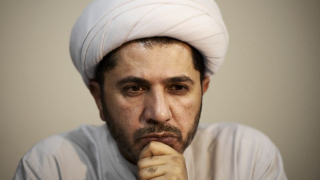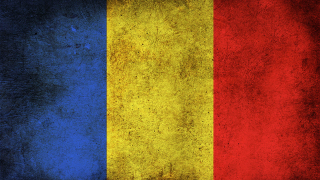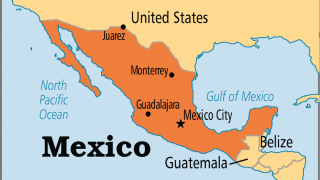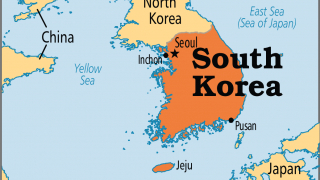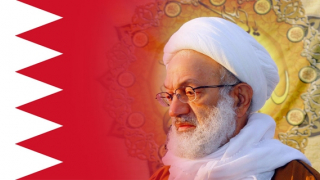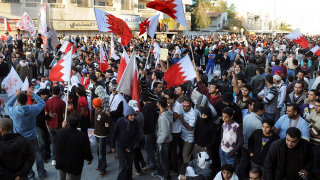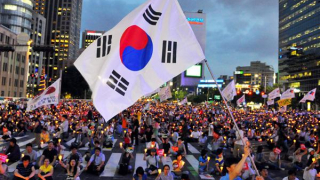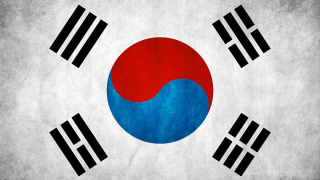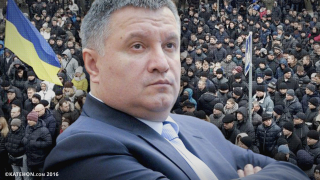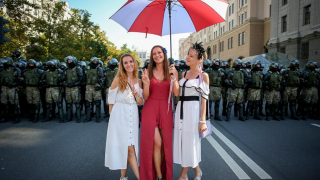Bahrain's Opposition Leaders Sentenced to Life Imprisonment
The despicable Bahraini regime has handed a life sentence to the head of the opposition and the al-Wefaq’s, now-outlawed political group, Secretary General Sheikh Ali Salman along with his two co-defendants, the former MPs Sheikh Hassan Sultan and Ali al-Aswad.
The three defendants have been sentenced, on Sunday, over charges of spying for Qatari intelligence with the aim of overthrowing the Bahraini government. However, the obvious crime that they committed, in the regime’s terms, is demanding a constitutional monarchy and an elected government that represents all Bahrainis, on the basis of justice and equal citizenship.
Sheikh Salman had been acquitted by the high criminal court in June, a verdict the public prosecution appealed. He is currently serving a four-year sentence over “inciting hatred” charge.
Bahrain, a key ally of the United States and the UK, which both have naval bases in the tiny island, has been hit by waves of unrest since 2011 when security forces crushed peaceful protests.
Political movements have been outlawed, tens of armless citizens have been murdered, and thousands of dissidents have been imprisoned and hundreds have been revoked of their citizenships, as the regime relentlessly continues with its crackdown on human rights activists and pro-democracy campaigners.
In June 2016, Manama also stripped the spiritual leader of al-Wefaq, Ayatollah Sheikh Isa Qassim of his citizenship over accusations that he had used his position to serve foreign interests and promote sectarianism and violence.
In March 2017, Bahrain’s parliament approved the trial of civilians at military tribunals. Irrespective of the international condemnation, the king ratified the constitutional amendment later in April.
Responding to the recent verdict, Amnesty International's the Middle East and North Africa Director Heba Morayef has described the decision as a "travesty of justice.”
She added, “This verdict... demonstrates the Bahraini authorities' relentless and unlawful efforts to silence any form of dissent." "Sheikh Ali Salman is a prisoner of conscience who is being held solely for peacefully exercising his right to freedom of expression," Morayef commented.
Various human rights organisations, including Amnesty and HRW, categorise Sheikh Ali Salman and other jailed critics as prisoners of conscience and say their imprisonment is politically-motivated and regarded as a heinous human rights violation.
Since June 2017, the Gulf Cooperation Council (GCC) states’ relations with the State of Qatar witnessed severe diplomatic tension, and this alleged accusation only came to light soon in November 2017.
This accusation is based on the well-documented telephone call between Sheikh Ali Salman; in his capacity as the secretary-general of the main opposition political licensed group then, with the Qatari Prime Minister Sheikh Hamad bin Jassem, during Bahrain’s 2011 unrest.
The mediation, which was encouraged by Washington, is documented by the Bahrain Independent Commission of Inquiry (BICI); founded by the King of Bahrain to investigate the 2011 events.
By that time, Qatar; whose membership is suspended now, was a member of the GCC and a friendly state to Bahrain. It was acting as a mediator between the regime and the opposition, as testified by Professor Chibli Mallat; a law professor and one of the mediators assigned by the US administration who witnessed the US-Gulf initiative.
Bahrain has already scheduled its parliamentary elections on November 24. In June, the government amended its law on political rights to ban leaders and members of the main dissolved political associations, including al-Wefaq and the secular Wa’ad, from running in the legislative elections.
The amendment came when al-Wefaq issued its political proposal, entitled “Bahrain’s Declaration,’ which consists of 13 “universal human principles serve as a model for moderation and participation in the management of the state.”
The initiative emphasises establishing a democratic atmosphere in Bahrain in order to give all the parties the freedom to have equal opportunities, which can be seized amid tolerance and respect for religious and cultural identity, sectarian and societal characteristics.
Bahrain’s Declaration is also based on the need for a reassuring sense of citizenship, national unity, fair representation in the society, community protection, development and pluralism.
It also called for the protection of civil peace through equality before the law, and the right to form civil society institutions, including the formation of political organisations.
In 1994, Sheikh Ali Salman was arrested, tortured and detained for months without trial before being deported and forced to live in exile for over 15 years, merely for demanding justice and democratic reforms.
Despite this unlawful verdict, Sheikh Ali Salman is a courageous advocate of democracy and any punishment would not change his request for political reform. He is today even more determined to continue his righteous path, his wife expressed.
It is worthy to mention that the repressive sentence comes ahead of the expected Benjamin Netanyahu’s visit to Manama. Observers say this is an indirect message to terrorize the Bahrainis who firmly refuse any normalisation with the Zionist enemy.


